Executive Courses
Upskilling Your Workforce through TDSI’s Executive Courses
TDSI’s Executive Courses under its Continuing Education arm look at domain-specific disciplines in systems thinking and systems engineering, as well as any in-trend/ emerging technologies, to upskill the Singapore defence workforce in line with the nation’s advocacy for lifelong learning. Embracing the digital transformation landscape today, participants will benefit from these courses, learning from subject matter experts from the defence technology community and/or academic institutions, on valuable topical knowledge and skillsets to manage real-world applications. This allows course participants to strengthen their capabilities and value-add to their employing organisations.
TDSI’s Executive Course “Military Navigation Systems Workshop” for Singapore’s Defence Technology Sector
Given the critical importance of navigation in modern military systems and operations that leverages on smart technologies, access to reliable navigation data is imperative while denying them to adversaries during military operations. The executive course on “Military Navigation Systems Workshop” aims to highlight the vulnerabilities in military navigation systems under different deployment scenarios, and share potential corresponding counter-measures. Participants from the defence technology community were appreciative of the knowledge gained from the workshop and acknowledged that the learning was highly relevant and impactful to their current field jobs/ projects. This workshop is well-recognised by the Professional Engineers Board and qualified for 6 Professional Development Units.
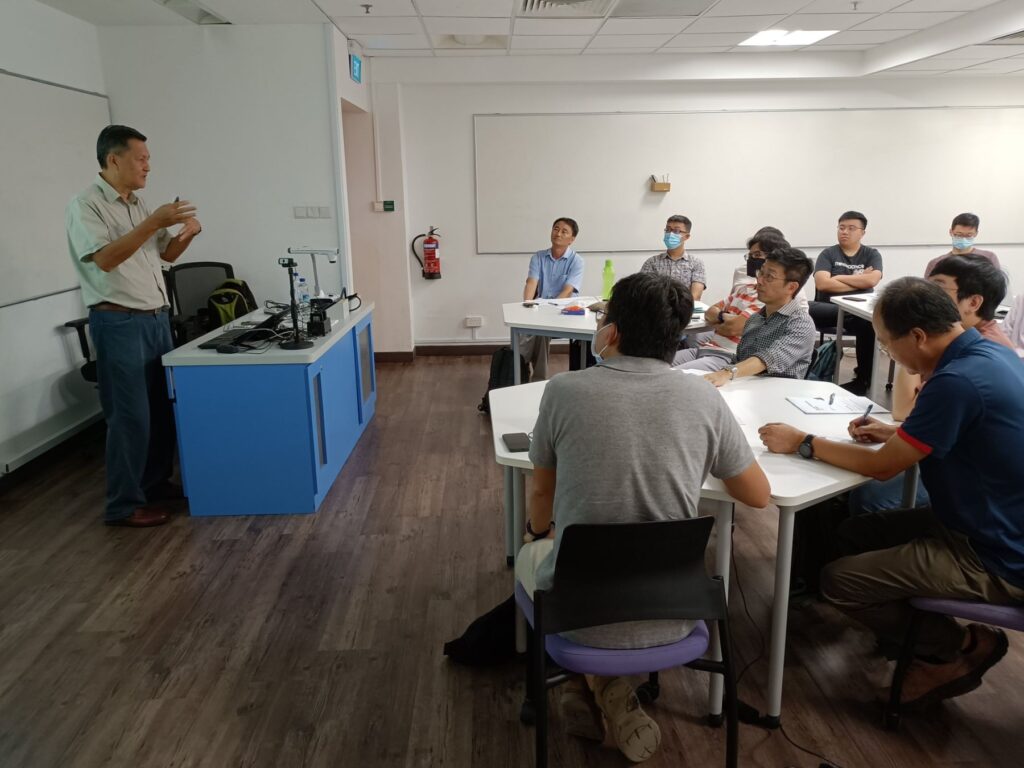
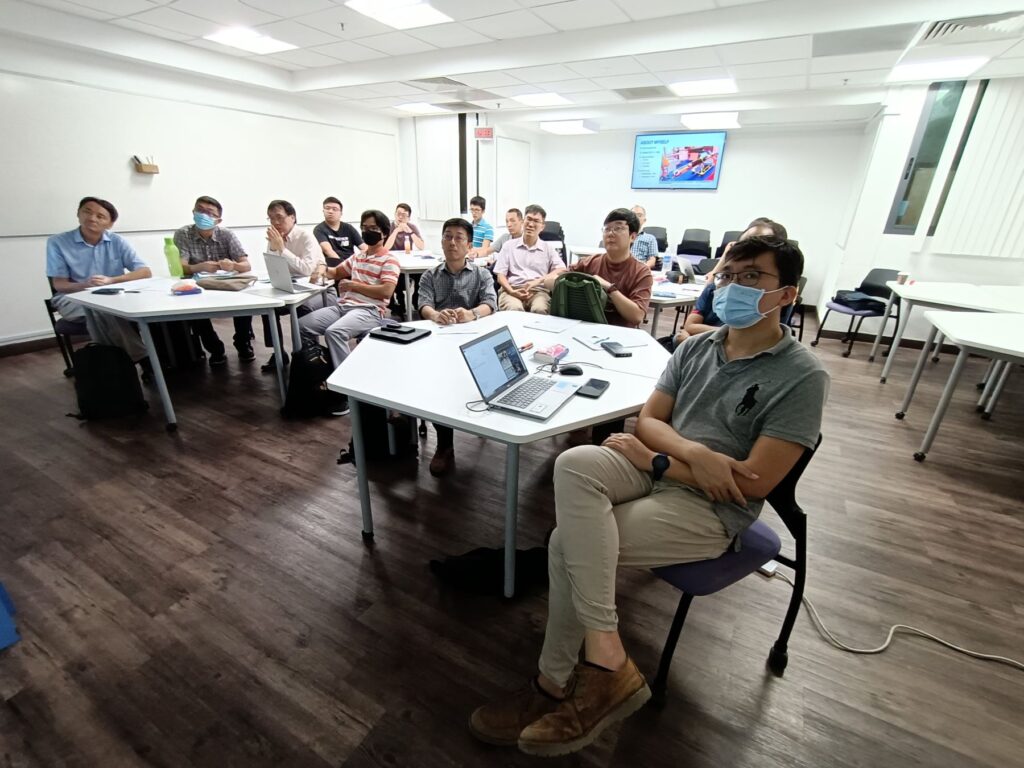
TDSI’s Executive Course “Systems Engineering and Analysis of Emerging Advanced Technologies for Defence Applications”
It is important for the Singapore defence forces to be at the frontier and be knowledgeable about emerging technologies for defence applications. The executive course on “Systems Engineering and Analysis of Emerging Advanced Technologies for Defence Applications” aims to present concepts and methods for engineering and analysing emerging advanced technologies, that include artificial intelligence and directed energy weapons, for defence applications. Course participants from the defence technology community have learnt and gained insights from the course that introduced concepts in complexity theory, strategic thinking, technology assessment, systems engineering and systems analysis. Course participants were appreciative that the learning gained have value-added to their current work with their primary affiliated organisations in the defence eco-system.
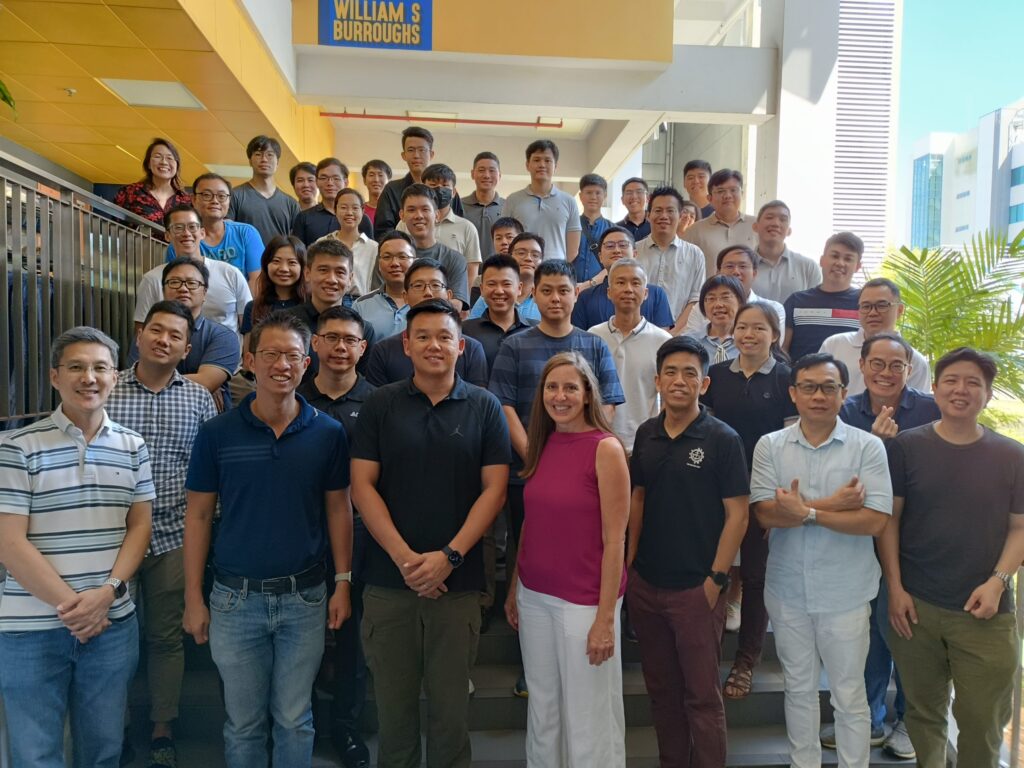
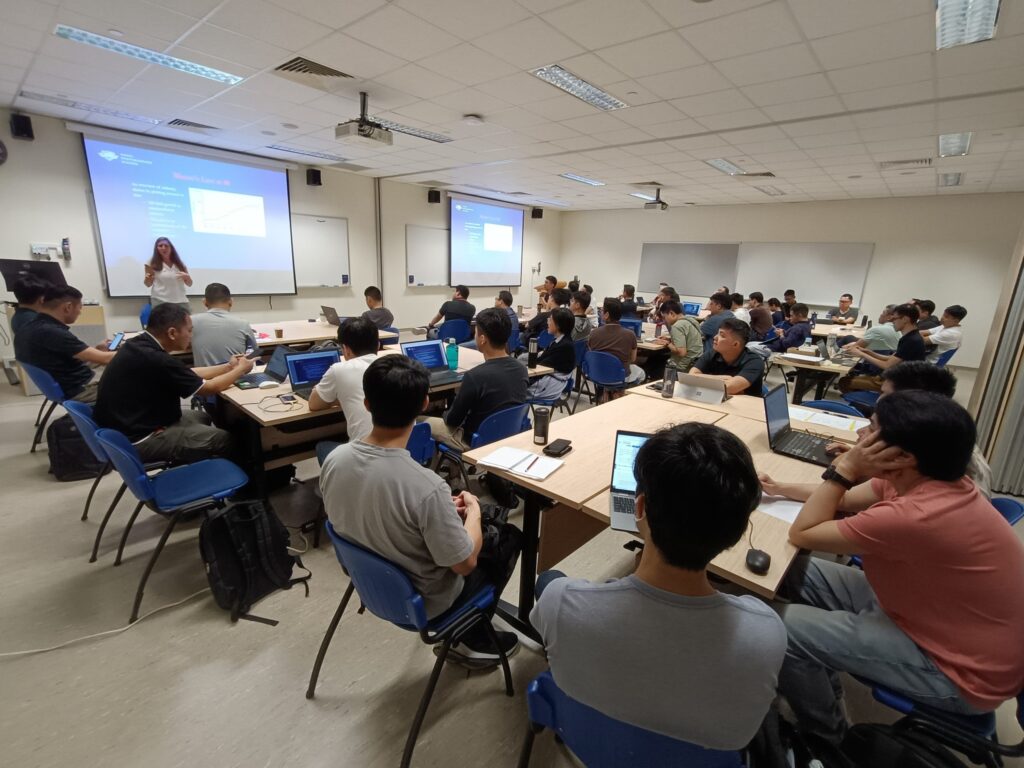
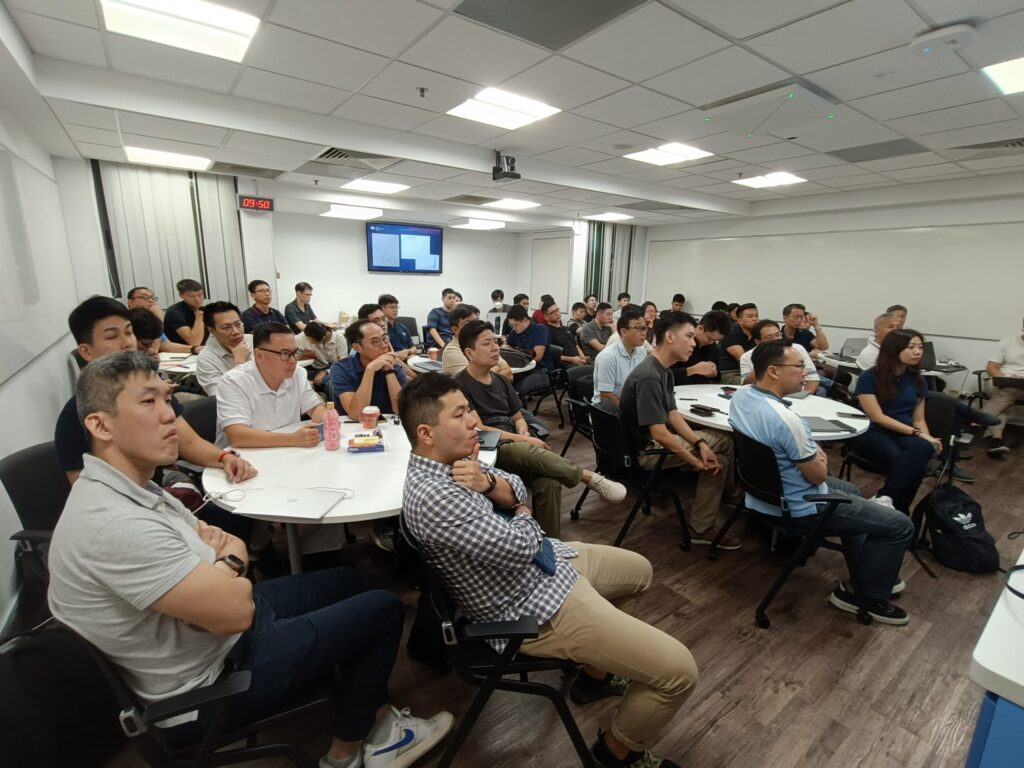
TDSI’s Executive Course “Generative Artificial Intelligence”
Artificial Intelligence (AI) technologies have been widely adopted in operations and work processes/ systems at the national level and in various industries. Generative AI is the latest cutting-edge technology that has been launched to extreme popularity, with progressive adoption by enterprises and industries because of its capabilities that can boost productivity and value-add decision-making, alongside many other deployment opportunities. Recognising the increasing importance of Generative AI for the defence sector, TDSI organised the executive course on this in-trend technology for the Singapore defence technology community to equip them with the fundamental knowledge of key concepts and applications of Generative AI, included algorithms such as generative adversarial networks (GANs) and variational autoencoders (VAEs). Course participants learnt how Generative AI could enhance military operations, from synthetic training data generation to scenario planning and decision support systems. This course is well-recognised by the Professional Engineers Board and qualified for 12 Professional Development Units.
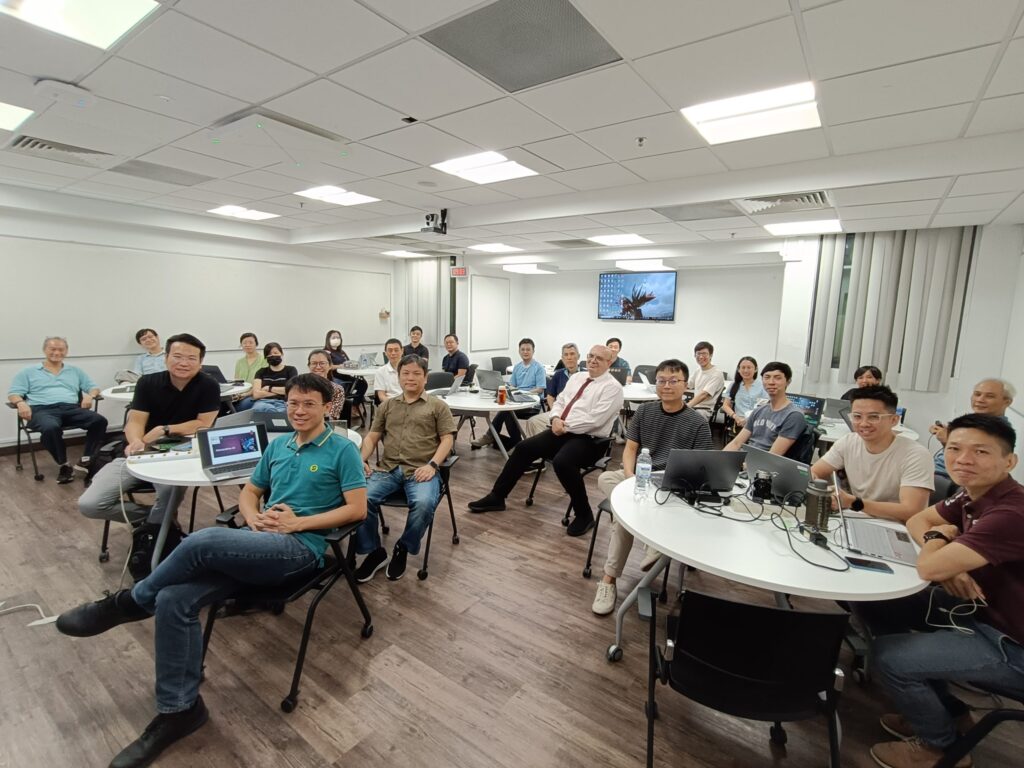
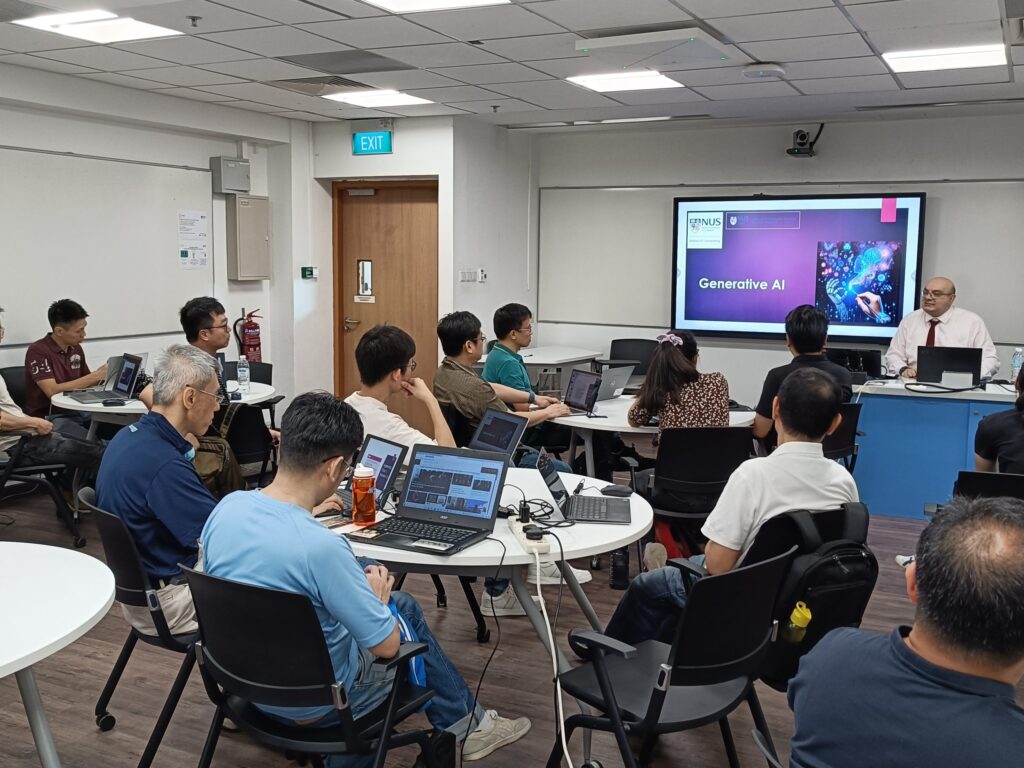
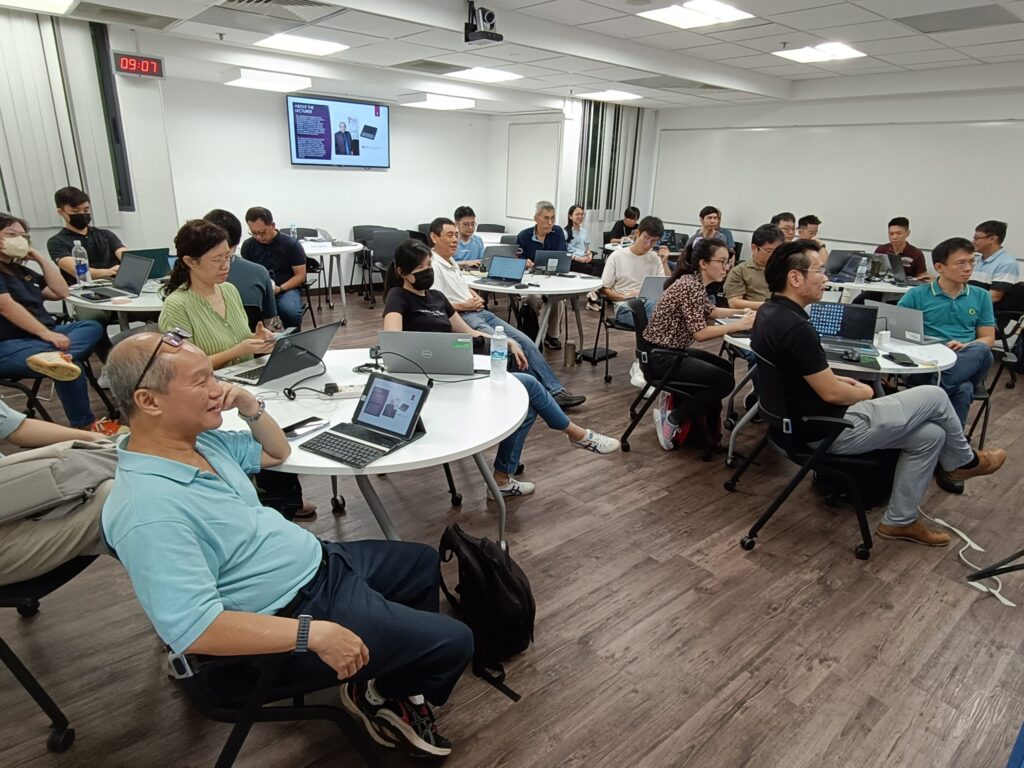
TDSI’s Executive Course “Swarm Intelligence and AI-Driven Unmanned Aerial Systems”
Swarm intelligence has become increasingly important for the defence community to learn as the technology is reshaping how autonomous systems operate in complex and contested environments. It is strategically important for the defence professionals to understand swarm intelligence technology to gain operational advantage, and with technology readiness, to ensure resilience and shape the future of warfare. Swarm intelligence is also a dual-use technology that could be applied from search-and-rescue and disaster response to maritime surveillance, making it essential for multi-domain operations. This 3-day intermediate-level course of TDSI focused on the fundamental and advanced concepts of multi-agent autonomous systems in the context of aerial swarms, specifically on the latest state-of-the art and practical applications. The course also provided a comprehensive overview of robotics and multi-agent systems, swarm formation, communications, task scheduling and allocations, swarm operations, as well as applications for heterogeneous systems and an introduction to game theory.
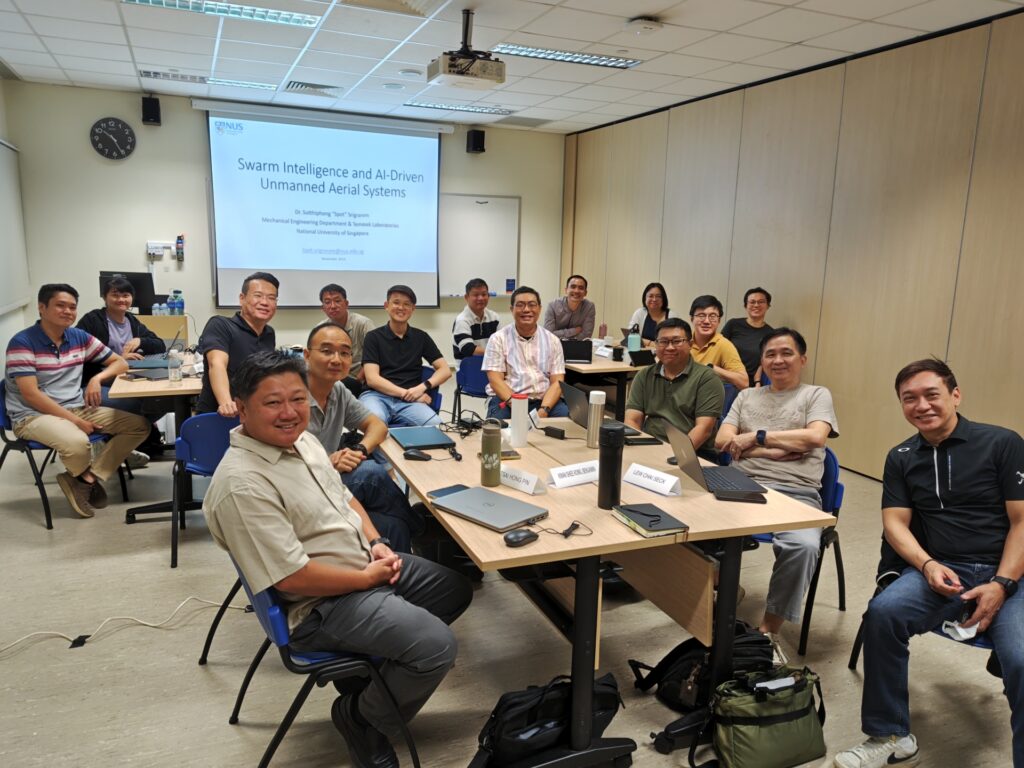
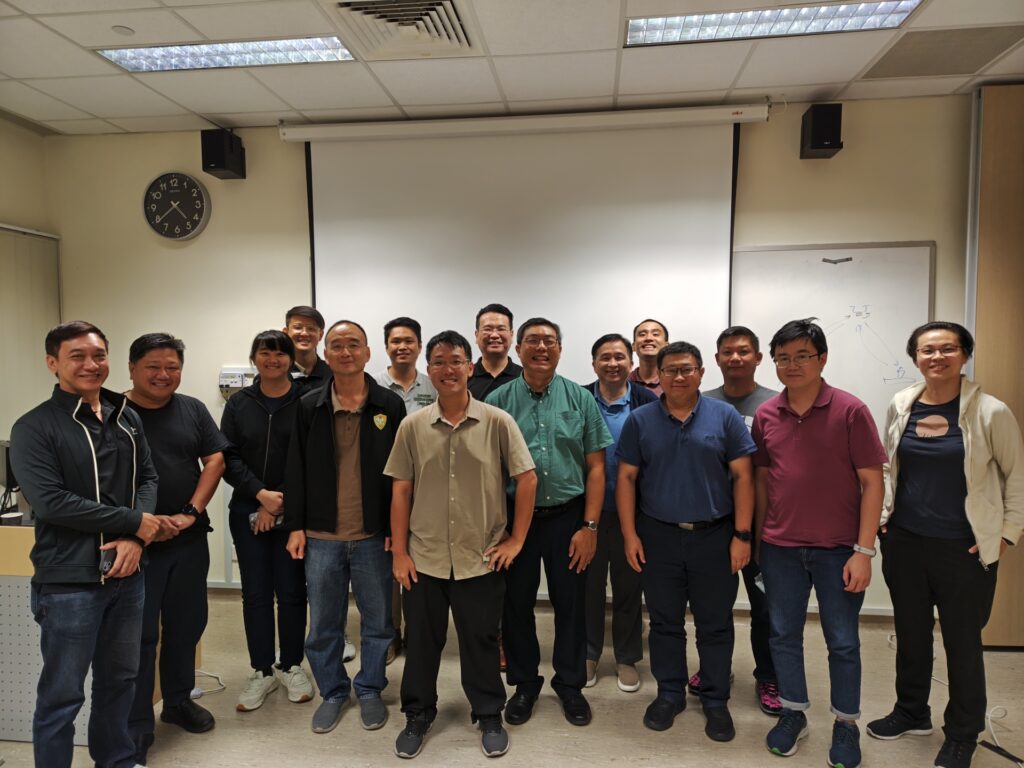

High Contrast Grating VCSELs for Optical Communications and 3D Sensing
Overview
Vertical cavity surface emitting lasers (VCSELs) are low-cost enabling laser sources for many applications including optical communications, 3D sensing and optical imaging. In this talk, speaker will review Berxel’s recent advances and commercialization of high-speed 106 Gbps PAM4 VCSELs for datacom applications and high-power conversion efficiency VCSEL arrays for 3D sensing applications.
A VCSEL typically consists of two distributed Bragg reflectors (DBRs) as the top and bottom mirrors. A DBR is comprised of many tens of layers of epitaxy layers with alternating refractive indecies and hence very thick. The thick top DBR makes it difficult to control the emission mode structure. Since 2004, her research group invented a new class of planar optics using near-wavelength dielectric structures, known as high contrast metastructures (HCM). Many extraordinary properties can be designed top-down based for integrated optics on a GaAs or silicon substrate. The one-dimensional version, a single layer high index contrast near-wavelength gratings (HCG), has been used to replace the hundred-layered DBR in a VCSEL structure.
Speaker will review recent results of HCG-VCSELs. With a fixed, high selection ratio in polarization, a novel structure light 3D sensor with high depth accuracy in scenes with multiple reflecting surfaces is shown. It is shown that HCG VCSEL exhibit fewer modes and can enable 3~5 times transmission distance over OM3 multimode fibers for 106G PAM4 modulation signal. Finally, speaker will also discuss future prospects for advanced applications.
Learning Outcome
Course Outline
Who Should Attend
Lorem ipsum dolor sit amet, consectetur adipiscing elit. Ut elit tellus, luctus nec ullamcorper mattis, pulvinar dapibus leo.
Speakers
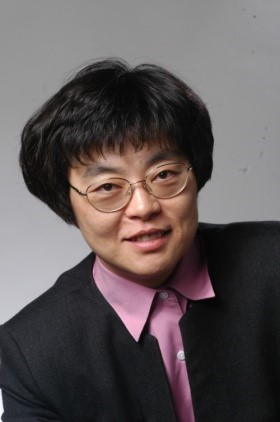
Prof Connie J. Chang-Hasnain
Chairperson, Berxel Photonics Co. Ltd.
Prof Connie Chang-Hasnain is the Chairperson of Berxel Photonics Co. Ltd. and Whinnery Chair Professor Emerita at the University of California Berkeley. She is member of the US National Academy of Engineering and National Academy of Inventors.
Prof Chang-Hasnain was Associate Dean of College of Engineering (2014-2019), Chair of the Nanoscale Science and Engineering Graduate Group at UC Berkeley (2006-2017), and the founding Co-Director of Tsinghua Berkeley Shenzhen Institute (2015-2020).
Prof Chang-Hasnain pioneered the first planar VCSEL structure using proton implantation, first MEMS-VCSEL for wavelength tuning, and the first 1000-element VCSEL arrays for 3D imaging. Prof. Chang-Hasnain has been honored with many awards including the Okawa Prize (2018), UNESCO Medal For the Development of Nanoscience and Nanotechnologies (2015), IEEE David Sarnoff Award (2011), and the OSA Nick Holonyak Jr. Award (2007). She was the Editor-in-Chief of Journal of Lightwave Technology 2007-2012. She was the 2021 President of Optica (formerly known as OSA).
Details
- 05 Jun 2023, 10:00 am - 11:30 am
- -
- NUS, Blk EA, #02-11
Status
This event is now closed.
